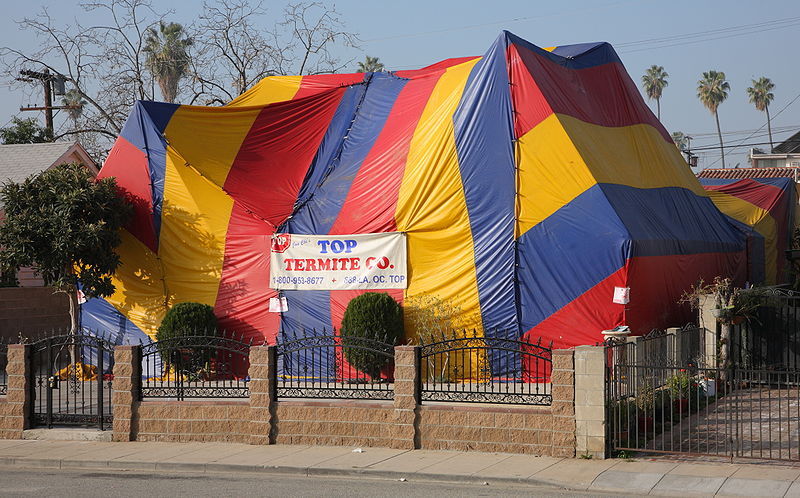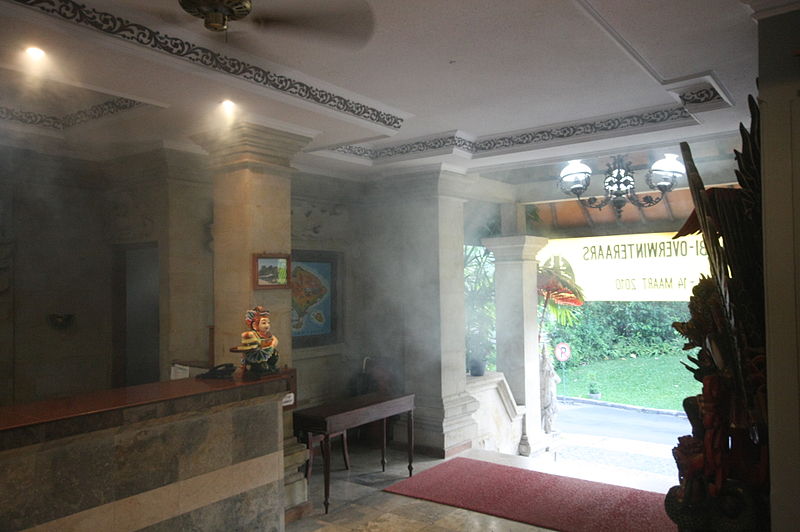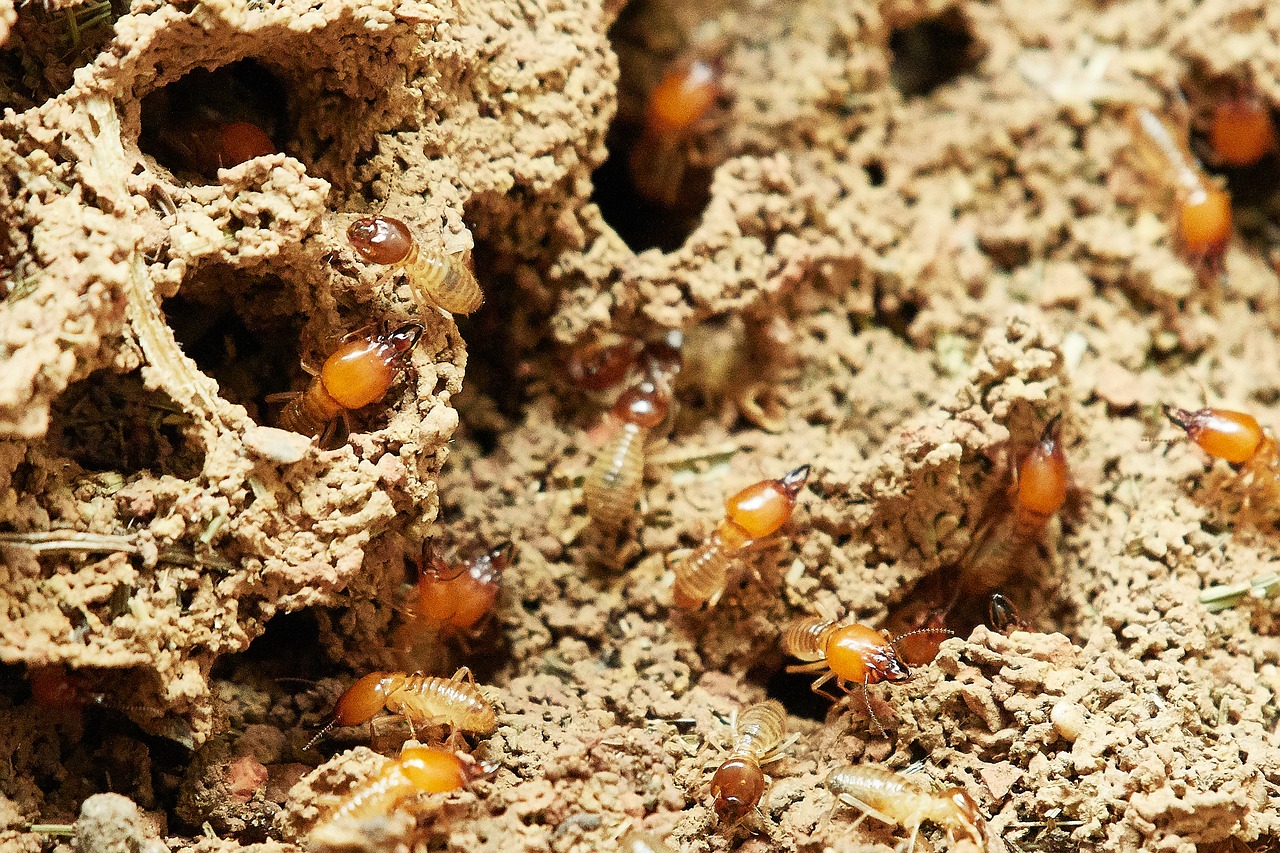Termites are some of the most structurally destructive pests you can have at home. Fortunately, there are a lot of ways to prevent or get rid of termite infestations. One of the most popular methods is called termite fumigation. It’s popular because it’s incredibly potent. It’s one of the most effective and long-lasting solutions to termite problems.
What is termite fumigation exactly?
Termite fumigation has a lot of names. It is sometimes called structural fumigation or termite tenting. It works by covering your entire home with a tent and bombing it with a fumigant gas like sulfuryl fluoride.
It’s very effective against termites because the gas seeps through the smallest corners of your home. It’s the ideal termite solution, especially for severe cases where termites are too spread out in the property.
But termite fumigation can sometimes be too effective. It’s dangerous not just to termites, but also to humans, animals, and plants. If you are thinking of subjecting your home to this treatment, you should keep this in mind.
You should look for a licensed pest control professional and follow their instructions. This will ensure the effectiveness and safety of the process. But what is the process? How does termite fumigation work?

How does the termite fumigation process work?
Different pest control professionals may have different specific steps in their process. But here is a general idea of the entire termite fumigation process.
Before fumigation
Your licensed pest control professional will not immediately cover your home with a tent and bomb the termites away. They will need to do some preparations first.
- They will inspect your home for termites. It’s common protocol to look at the termite infestation first. This way, they can determine the severity of the problem and how they can deal with it. Many termite infestations can be solved by other methods, like bait traps and spot treatments. But for severe infestations, termite fumigation really shines.
- They will talk you through the risk and severity of your termite problem. As the homeowner, you have the right to know the current condition of your property. Your pest control professional will be able to tell you the severity of the termite situation and how dangerous it can be to you, your family, and your property.
- They will calculate the amount of gas they need. Your pest control professional will inspect your home not just to determine the severity of the problem, but also to prepare it for fumigation. The severity of the infestation and the size of the home are some of the factors they consider to determine the amount of fumigant gas they need to effectively get rid of the problem.
During fumigation
After inspecting your entire property, your pest control professional will move on to the actual fumigation process. They will ensure the effectiveness and safety of the entire process by doing some safety measures. But you can be involved here too. Just ask how you can help.
- They will cover your property with a tent. They will cover your property to make sure that the fumigant gas will be trapped inside. This will accomplish two things. It will make the fumigant gas potent and it will keep your neighborhood safe from the dangerous gas.
- They will prepare your home’s interior for fumigation. Because the fumigant gas is dangerous, you and your family will not be on your property during fumigation. But you can help out with the preparation. Open your cabinets and doors. Double wrap your personal belongings. And cover your furniture with tarps.
- They will release the fumigant gas. When your property’s exterior and interior are safe and secured, your pest control professional will release the fumigant gas and let it do its magic. The gas will stay on your property for about 18-24 hours.
After fumigation
Once the hours have elapsed, your pest control professional will move on to the post-fumigation procedures. Usually, these procedures involve getting rid of the fumigant gas and checking if it is safe for you to return home.
- They will begin the aeration process. This is the part where they free your home of the fumigant. Usually, your pest control professional has a pre-installed ventilation system in place to get rid of the gas efficiently and safely.
- They will remove the tent around your property. Your pest control professional will undo all the preparations they have made. They will remove the tent around your property, open the locks they may have put in place to trap the gas, and take down the warning signs for your neighbors. Some pest control professionals do additional spot treatments. But some don’t because they may not be necessary.
- They will determine if it’s safe for you to return home. Pest control professionals will check your property if it has residues of the fumigant gas. After all, it’s a potent gas and it has been on your property for many hours. It’s not too farfetched for the gas to linger a little longer.

Quick tips for an effective and safe termite fumigation process
You can trust your pest control professional to get rid of your termite problem. But this doesn’t mean you don’t have a part to play. There are some things you can do to help your pest control professional. Make the termite fumigation process effective and safe with these quick tips:
- Make sure you are hiring a licensed pest control professional. You can try to coordinate as much as you can to ensure the effectiveness and safety of the entire process. But it can still fail if the person or company you have hired doesn’t know what it is doing.
- Look for accommodation as early as you can. Your property will not be available for a few days. Look for a place to stay even before the fumigation process begins.
- Don’t forget about your pets and plants. Remember that you and your family are not the only living beings in your home. You may have pets and plants that are at risk too. Take them with you to your place of accommodation or ask a neighbor or two to look after them for a while.
- Always follow instructions. Your pest control professional knows better than you. Listen to their instructions and follow them diligently.

